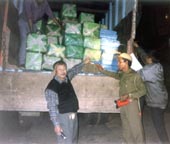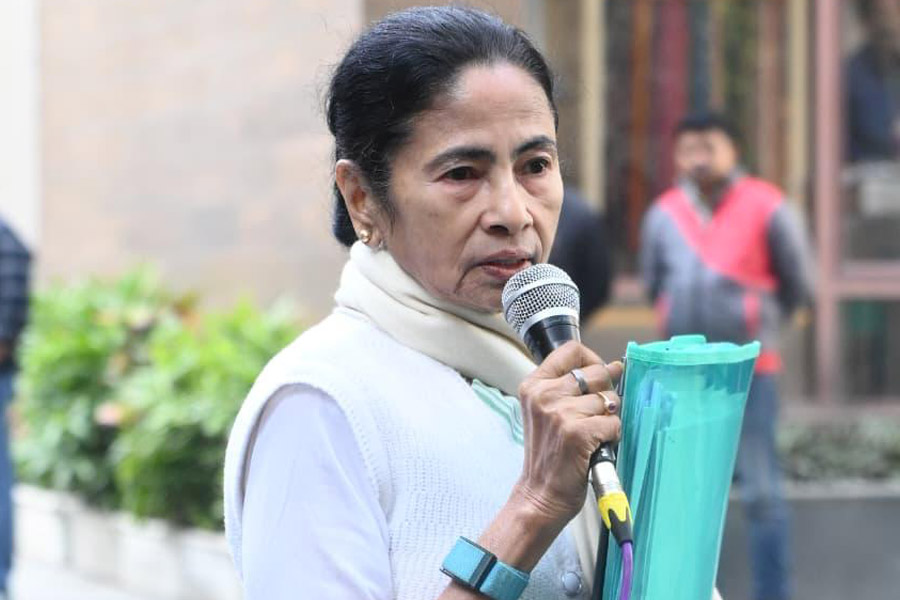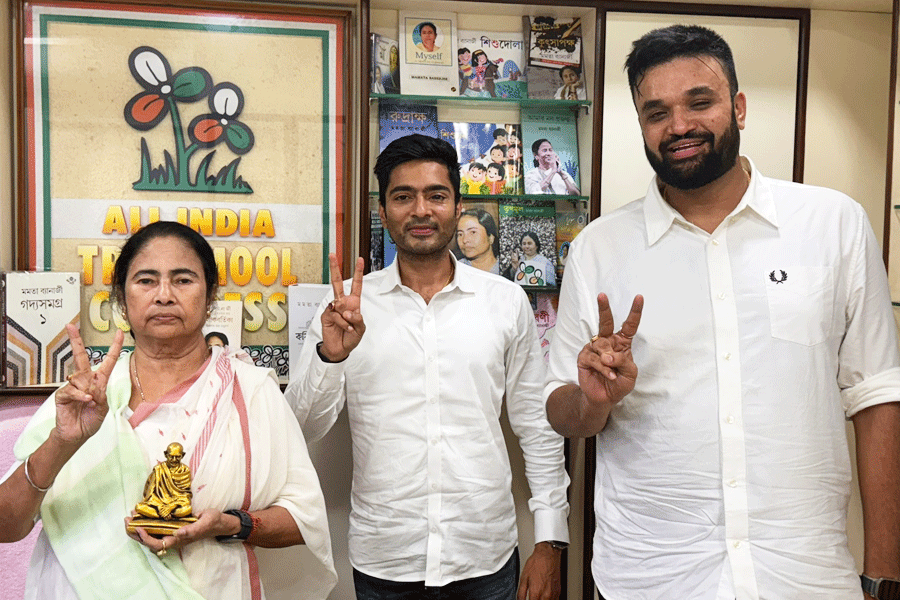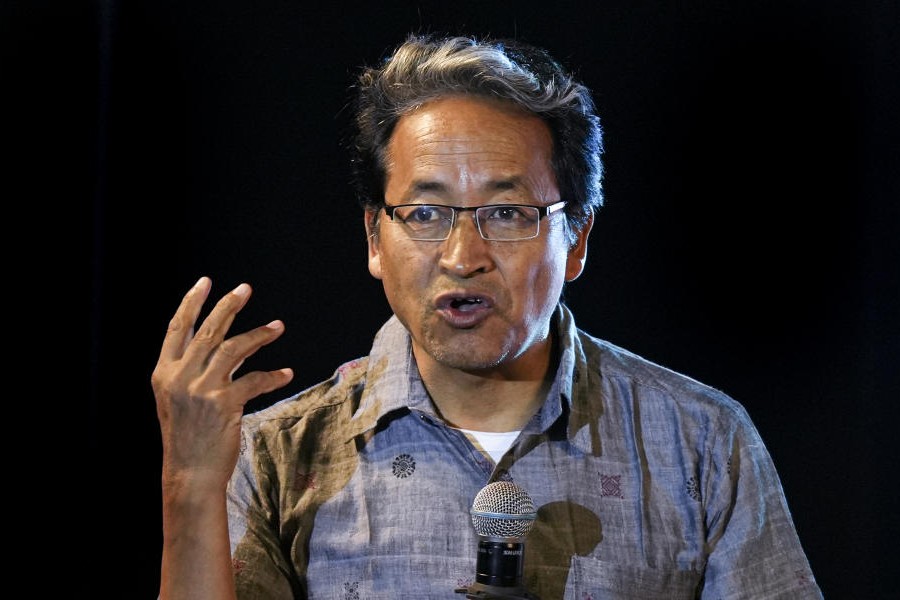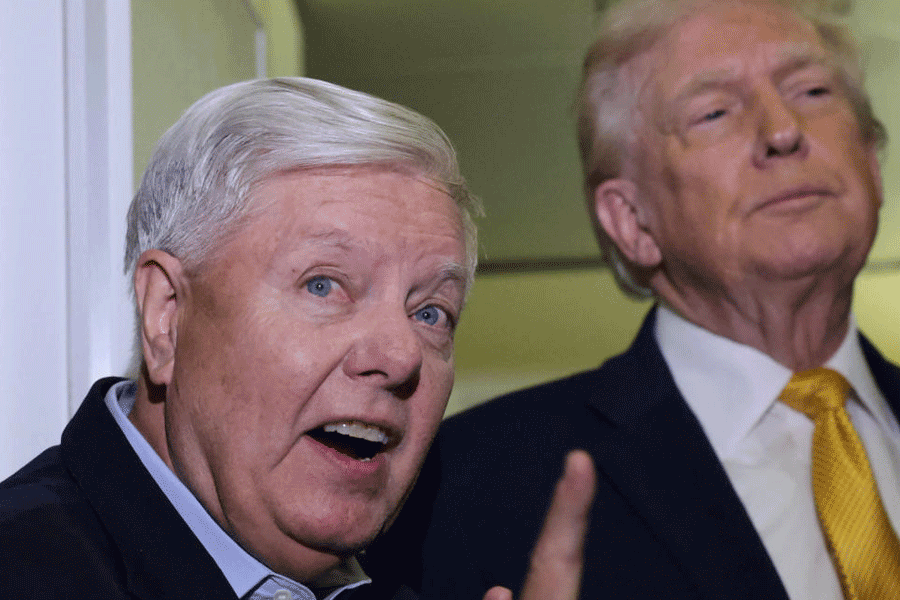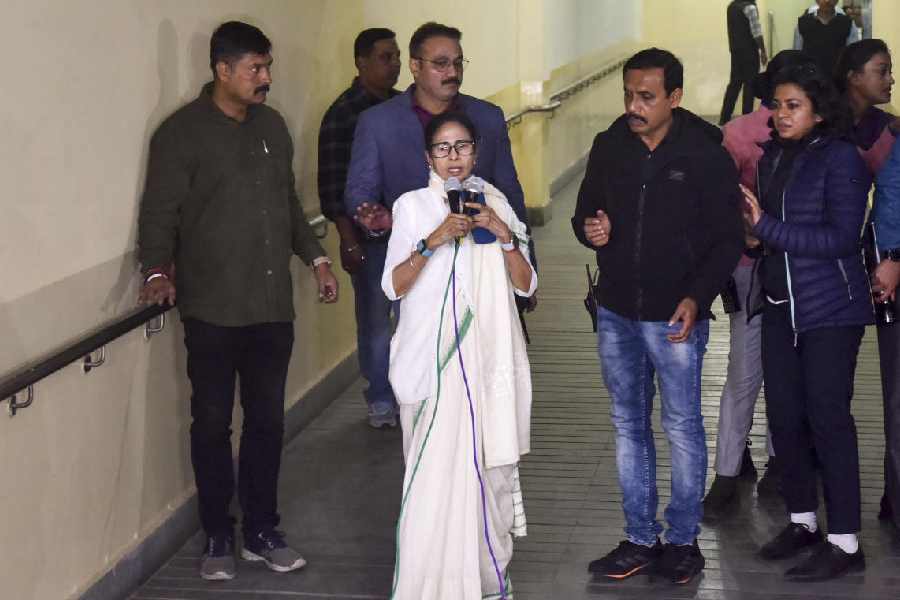 |
| Artisans work on the latest equipment at the bamboo park on Tuesday. Picture by S.H. Patgiri |
Feb. 17: Artisans from Nepal, Bangladesh and Thailand will congregate here at the cane and bamboo technology park in the Bamunimaidan area very soon to share their expertise with the entrepreneurs of the region.
The park, inaugurated by the United Nations Industrial Development Organisation’s South Asia regional director George B. Assaf today, is located at the industrial shed of M/s Assam Tubes and Conductors Limited.
Speaking after the inaugural function, Assaf said: “It will be a centre of excellence for the region in bamboo technology and a major hub of bamboo products in South Asia.”
The UN official said chief minister Tarun Gogoi has shown keen interest in the $ 1.4-million project funded by the United Nations Development Programme.
The park, packed with state-of-the-art machines imported from various countries, will provide hands-on training to wannabe entrepreneurs and showcase the latest trends in bamboo products. The imported equipment comprises a bamboo splitting machine, four side planing machines and a hand splitter.
Assaf said the park has already received requests from Nepal for training bamboo artisans of the Himalayan kingdom.
He said the United Nations Industrial Development Organisation has chosen the Northeast for imparting training on bamboo processing and adding value to the products. This would, in turn, develop human resources and facilitate the manufacturing of quality bamboo floorings, mat boards, curtain boards, construction beams and furniture.
“A lot of awareness has been generated through this project and people are coming forward for training,” he said.
The Planning Commission has decided that the park would be the lead institution in the region for launching the national mission on bamboo technology and trade.
The commission has proposed a Rs 2,608-crore national mission to cash in on the emerging market for environment-friendly “green products” and generate employment opportunities.
Apart from the training facilities, the park will have a museum showcasing various bamboo products, said Kamesh Salam, the project co-ordinator of the cane and bamboo technology centre — the official name for the park.
He said the main purpose of the park would be to train people who cannot afford to go to Delhi or China for training in the cane and bamboo sector. “This will be the best place for them and for the experts because here they can interact with people from the grassroots level,” he added.
The raw stock of bamboo in the region has been pegged at Rs 5,000 crore, while utilisation of 25 per cent of the total stock would generate Rs 2,500 crore per annum.
The size of the domestic bamboo economy is Rs 2,043 crore and the market potential is estimated at Rs 4,463 crore, with a projected annual average growth rate of 15 to 20 per cent.

